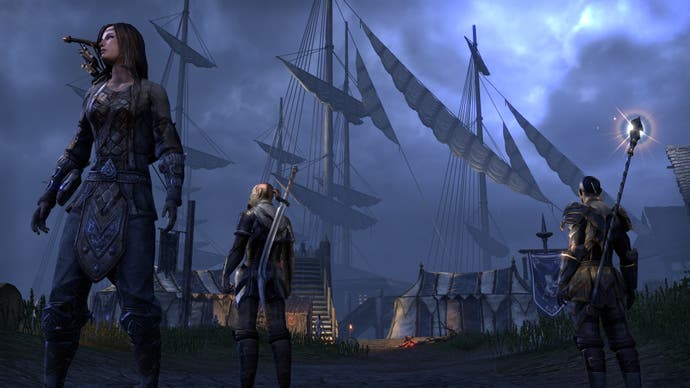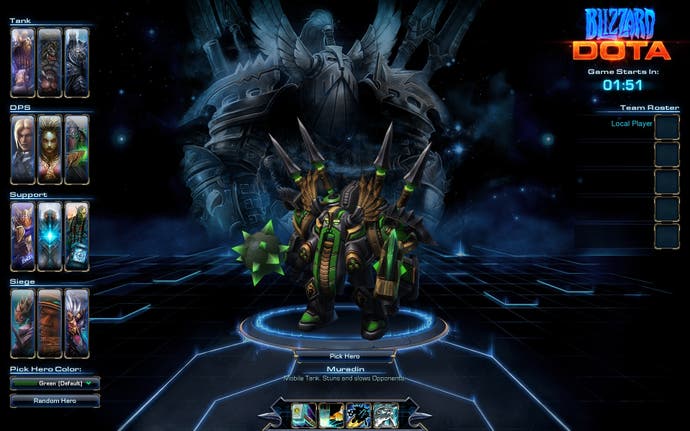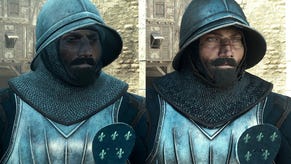Have traditional MMOs had their time?
And what do we make of the shared-world games and MOBAs that have risen up to replace them?
Traditional MMOs have gone out of fashion lately. It used to be that every gaming brand had exciting untapped MMO potential and every publisher wanted an MMO in its stable, but the gold rush inspired by World of Warcraft yielded little precious metal, and a lot of publishers got burned in the process - especially Electronic Arts with Star Wars: The Old Republic - while the term "MMO" has become taboo when discussing a new breed of games that includes The Division and Destiny, even though in many respects they are both massively multiplayer and online.
Now it's not MMOs that publishers are in a hurry to stuff into portfolios, but "shared-world shooters" and MOBAs - multiplayer online battle arena games - because everybody wants a piece of those big fat World of Tanks and League of Legends money pies, and it sure doesn't cost as much to bake them.
Is that it, then, for traditional MMOs?
"The traditional MMOs [have] had their time, definitely," Ragnar Tornquist tells me, and he should know. The Secret World, which was a traditional MMO he built at Funcom, launched last year and suffered the same fate as many others: it failed to bring in the crowds and caused serious problems for the company as a result. Tornquist has now left Funcom and let go of his ties to The Secret World.
"I don't see the traditional MMO having much of a chance in the future, but games that bring tons of people together - they're definitely going to exist. So you'll have a subset of it, but I'm hoping it will diversify a little bit more," he elaborates. "Definitely you're not going to have the big subscription-based MMOs any more - those are dead."
World of Warcraft's stiffest competition over the years came recently in the shape of Guild Wars 2, an MMO that challenged conventions and did not require a monthly subscription fee. It's not traditional in those regards, then, but it is traditional in its multi-million-dollar scope, approach and vision. Guild Wars 2 sales sound like they are close to five million and, coincidentally, Warcraft has dropped to its lowest subscriber numbers in years.
"I don't know if [the world has] moved on," Guild Wars 2's lead content designer Mike Zadorojny says, "but definitely the landscape of the industry is changing.
"Traditional MMOs are expensive things to make and it takes a lot of time investment, and it's kind of a risk, kind of a gamble, and it depends on the type of game you build, what your pricing structure is, how much time you put into development and things like that.
"So everyone's trying to find how they can connect with their fans in an engaging and effective manner that's also, because this is a business, in a profitable manner as well. We found our way; the fans have actually been really receptive to what we're doing in terms of our strategies and things like that, and they've supported us through this.
"Definitely the landscape of the industry is changing..."
Mike Zadorojny

"This is just an evolution of what it means to be part of this industry," he says. "Things are going to change. Some people can find ways to still be profitable with traditional markets or what they are currently doing, but everyone is always going to be looking at what's the next big thing and how is that going to apply to them."
The next big thing in the traditional MMO world is The Elder Scrolls Online, a huge, heavily financed project that's been in development for six years. But has it missed the boat? It's had a rocky reception so far, although its profile rose at E3 with news that it will be on PS4 and Xbox One this coming spring as well as PC.
"It's a very strong IP," says Tornquist, "it's a very strong universe, and if any game can give a little bit of CPR to the MMO genre, that would be it.
"But I'm worried on their behalf. I've seen what a big MMO can do to a studio, and I'm worried that this might be a little bit too much too late. But we'll see."
"We're eyeing it," says Guild Wars 2's Zadorojny, "but we're so focused on the initiatives that we're doing in terms of what we're trying to accomplish that it doesn't really change what our plans are."
Will The Elder Scrolls Online require a monthly subscription fee, even on top of PlayStation Plus and Xbox Live fees? We don't know yet. I hope not. But just as publishers like NCSoft (and hopefully Bethesda) are starting to recognise and react to problems with the World of Warcraft business model, so developers are also starting to take a new approach to the fundamental game design.
Activision and Bungie's Destiny is one of the hot new kids on the block, declining to be known as an "MMO" but rather a "shared-world shooter". It isn't a traditional MMO in the sense of starter zones, fetch quests, raids and so forth, but it is persistent and always online, and it scales from single-player experiences to co-op to multiplayer, match-making behind the scenes. Ubisoft's The Division is an MMO in console clothing in many respects as well, while even Respawn's Titanfall, due to be published by EA, is always online and features persistent elements.
Originating on PC are online multiplayer games like DayZ, a hardcore survival RPG with zombies that, when it was an ArmA 2 mod, rocketed to over a million players in just four months. Now a standalone version is on the way. Then there's Minecraft, a world-conquering phenomenon on a World of Warcraft scale, born on PC. A myriad different worlds/servers hosted by the community exist online, and the scale of some of the communal projects is staggering.
DayZ and Minecraft came from nothing. They were creations of one brain in each case, built quickly and cheaply. They blossomed because they were new, risky and built on the creativity and participation of their players more so than their creators; although they weren't blank slates, they weren't staid, monolithic theme park MMOs trying to please everybody either. They had what came to be acknowledged as a tightly focused appeal, despite their many players and shared worlds, and that is now catching; Camelot Unchained, for example, is a Kickstarter MMO with a budget of $5 million and an unwavering focus on a niche audience that wants a hardcore PVP game. In some respects it's risky and uncompromising, but it seems wise to the lessons learned by its most recent peers, which is exciting.
"You wouldn't see 'Guild Wars 2 is now a MOBA', but you might see that maybe we introduce a new activity type or something like that..."

Finally we come to MOBAs, a genre dominated by the enormous League of Legends, although there's space at the table for Valve's Dota 2 and perhaps Blizzard All-Stars as well.
All of these goings-on don't fall on deaf ears. It's not like ArenaNet or Blizzard work in a bunker, oblivious to current affairs. Blizzard is taking Titan back to the the drawing board, for example, which can be read as an admission that its current ideas are not up to scratch. Meanwhile, at ArenaNet, hundreds of staff play all the popular games of today, and they're not shy about being influenced by them.
"We draw inspiration from what other companies are doing and some of the other things that we're playing," Zadorojny freely admits. "Drastically, you wouldn't see 'Guild Wars 2 is now a MOBA', but you might see that maybe we introduce a new activity type or something like that, that plays similar to those types of things.
"We want to change up. We want to make things that are new and exciting for the players and give them a chance to try some of these things but are familiar with their character type and being able to celebrate that."
Traditional MMOs - big, hulking projects hoping to claw back investment with massive sales or micro-transactions or subscription fees - may be going the way of the dodo, then, but the fundamentals of the MMO concept are not, even if they are changing shape in order to retain their relevance and refresh their mystique.
Former Blizzard developer Mark Kern blogged recently about how he thought World of Warcraft, a game he helped build, had "killed" a genre. "Sometimes I look at WOW and think 'what have we done?'" he wrote. "I think I know. I think we killed a genre."
You can understand Kern's reaction, of course, because the last decade is littered with the remnants of dead and dying MMOs hewn in World of Warcraft's shape. But he's probably being a little harsh on himself, because it's not his fault that many publishers failed to look sufficiently beyond what WOW was offering in search of something more relevant to evolving tastes. And the fact is, as we saw during E3, many game makers are doing that now, and the fruits of those endeavours have almost finished ripening.
Of course, none of those games are called MMOs.
Perhaps Kern's right to a certain extent, then - World of Warcraft did kill a genre. But only in name.










